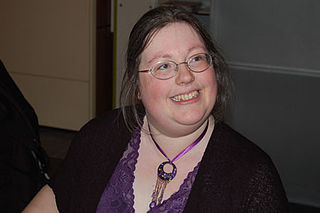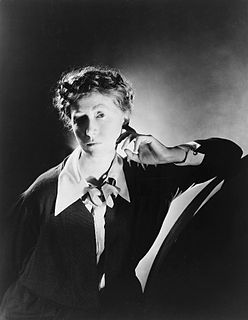A Quote by Tansy Rayner Roberts
History is imperfect and biased, and it always, always has omissions. The most common omissions are the bits that the writer of that history took for granted that his readers would know.
Related Quotes
I feel history is more of a story than a lesson. I know this idea of presentism: this idea of constantly evoking the past to justify the present moment. A lot of people will tell you, "history is how we got here." And learning from the lessons of history. But that's imperfect. If you learn from history you can do things for all the wrong reasons.
Elric knew that everything that existed had its opposite. In danger he might find peace. And yet, of course, in peace there was danger. Being an imperfect creature in an imperfect world he would always know paradox. And that was why in paradox there was always a kind of truth. That was why philosophers and soothsayers flourished. In a perfect world there would be no place for them. In an imperfect world the mysteries were always without solution and that was why there was always a great choice of solutions.
I always wanted to read. I always thought I was going to be a historian. I would go to school and study history and then end up in law school, once, I ran out of loot trying to be a history high school teacher. But my dream was always to place myself in a situation where I was always surrounded by books.
I... recommend to every one of my Readers, the keeping a Journal of their Lives for one Week, and setting down punctually their whole Series of Employments during that Space of Time. This kind of Self-Examination would give them a true State of themselves, and incline them to consider seriously what they are about. One Day would rectifie the Omissions of another, and make a Man weigh all those indifferent Actions, which, though they are easily forgotten, must certainly be accounted for.
I'm not against knowing the history of white people in the U.S. - that's not the point. The point is that there's so much greater history. We don't know about Native Americans. Very basically, we don't know that much about African American history, except that they were enslaved. You only get bits and pieces.
I am interested in the possibility that we are going to be wrong in the same way that history has indicated that mankind always is. It seems as though the history of ideas is the history of being wrong. And to me, that is a kind of continuum. It's a continual path that shows we don't always know something, but we're always shifting to a path that makes us feel more comfortable in the moment, even if that shift is wrong, and a new shift is destined to happen again.





































